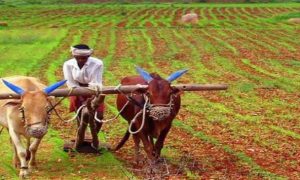An official told News18 that 67% work on the Delhi-Mumbai expressway is complete, that is, 920 km of the total 1,386 km e-way is ready. The sections are not in continuous length, and will be opened as and when they are done, the official added
The government is aiming to start the Delhi-Surat section of the Delhi-Mumbai expressway by March with two additional stretches of over 300 km almost ready.
A document of the Ministry of Road Transport and Highways seen by News18 shows that a 100 km section between Vadodara and Ankleshwar is almost ready and is set for inauguration.
Read More: Mahakumbh preparations: 61 projects worth ₹795 crore get apex panel nod
Another 205 km-stretch between Lalsot and Jhalawar is almost complete. There are nine packages between Lalsot and Rajasthan-Madhya Pradesh border, work is 100% finished in two making up for 79 km. On another 66 km, work is more than 90% completed. Work on an additional 60 km is more than 80% done.
Two of the sections in this stretch are critical and the progress is little slow on the 35 km part. Out of these two, one is 26 km-long where 75% work has been completed and another is 8 km-long where the progress is 45%.
On Friday, Road Transport and Highways secretary Anurag Jain said the ministry is aiming to start the Delhi-Surat section by March.
“Only a small part in Rajasthan (8 km tunnel) will not be ready. An old existing road can be used for that stretch. So, we will have Delhi-Surat connectivity (through Delhi-Mumbai expressway) by March,” Jain said, adding that the entire Delhi-Mumbai section can be expected for traffic movement by December.
He added that the 94 km section from Mumbai to Jawaharlal Nehru Port Trust will be ready in 2025.
PROGRESS UP TO DECEMBER
In total, out of the 1,386 km Delhi-Mumbai Expressway, work on the 920 km stretch has been done – about 67%.
A ministry official told News18 that these are not in continuous length. The ministry will open the sections, which are ready.
“Four packages between Vadodara and Ankleshwar are ready now and some minor work is left. We can expect the opening of this section in coming weeks,” they said, demanding anonymity.
Across the length of the expressway, work is 100% completed on 19 packages making up for 563 km. This included the two stretches already opened for the public in 2023 – one between Sohna and Lalsot (247 km) and another between Jhalawar and Madhya Pradesh-Gujarat Border (245 km).
Further, another 176 km of the stretch — 63 km in Gujarat and 113 km in Rajasthan — is more than 95% completed, the ministry document shows.
In terms of states, out of the 1,386 km Delhi-Mumbai expressway, highest share is in Gujarat at 432 km. Work on 186 km is complete. Next is Rajasthan (374 km) where work on 350 km is done. In Madhya Pradesh, work is almost finished with 244 km out of 245 km. In Haryana, work on 117 km out of 130 km length is finished.
In Delhi, 3.5 km of the 9 km-long project work has been completed.
It is important to note that packages were allocated at different times and have different target dates. The completed project is expected to be ready by mid-2025.
THE PROJECT
Expecting to reduce the travel time between Delhi and Mumbai, the 1,386-km Delhi-Mumbai expressway passes through Haryana, Rajasthan, Madhya Pradesh, Gujarat and Maharashtra. It is being developed at a cost of around Rs 1 lakh crore.
Once completed, it will be the longest expressway in India. It is expected to halve the commute time between Delhi and Mumbai, from nearly 24 hours to 12 hours, and shorten the distance by 130 km.
Further, it will improve the connectivity to economic hubs like Delhi, Mumbai, Jaipur, Kishangarh, Ajmer, Kota, Chittorgarh, Udaipur, Bhopal, Ujjain, Indore, Ahmedabad, Vadodara, and Surat, bringing economic prosperity to millions.
According to the ministry, the e-way will generate annual fuel savings of more than 320 million litres and reduce CO2 emissions by 850 million kg, which is equivalent to planting 40 million trees.

































